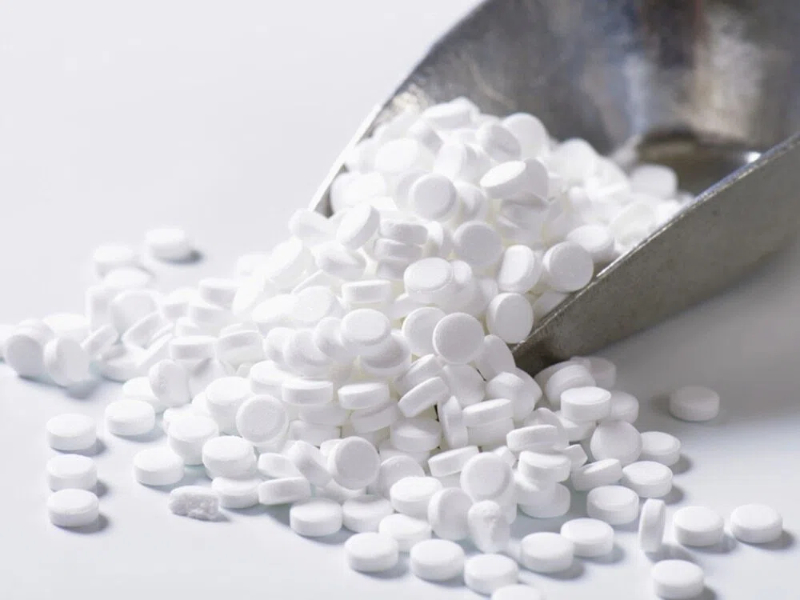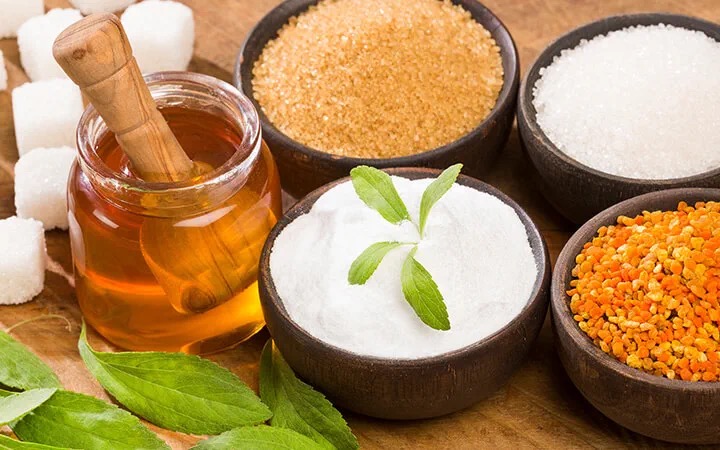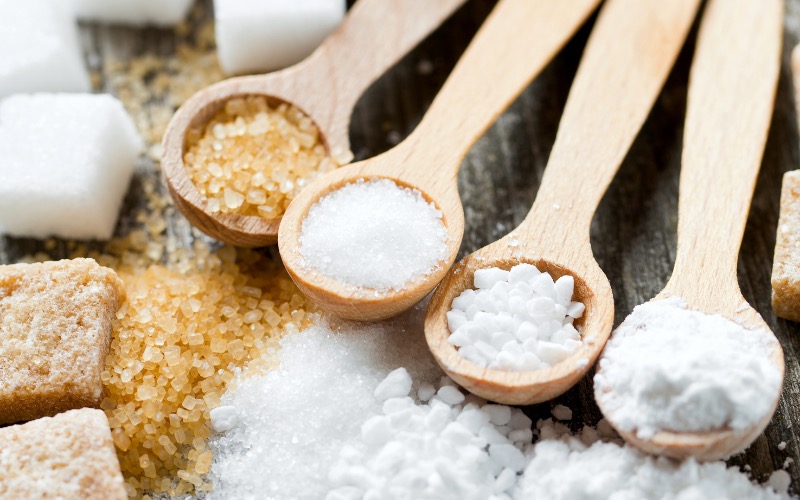Views: 222 Author: Sara Publish Time: 2025-11-23 Origin: Site








Content Menu
● What Is the Artificial Sweetener Used in Diet Coke?
● Why Aspartame Is Chosen as a Sweetener
● The Role of Sweeteners in Beverages
● Understanding the Chemistry of Aspartame
● Health and Safety of Aspartame
● Phenylketonuria (PKU) Warning
● Comparing Diet Coke to Other Low-Sugar Beverages
● Alternatives to Artificial Sweeteners
● The Discovery and Development of Aspartame
● Market Impact and Commercial Use
● Aspartame and Weight Management
● Environmental and Manufacturing Considerations
● The Controversy Around Artificial Sweeteners
● Diet Coke's Sweetener Evolution
● Future of Sweeteners in Soft Drinks
● FAQ
>> 1. What artificial sweetener is in Diet Coke?
>> 2. Is aspartame safe to consume daily?
>> 3. Does Diet Coke taste the same as regular Coke?
>> 4. Can people with diabetes safely drink Diet Coke?
>> 5. Why does Diet Coke have a warning about phenylalanine?
Diet Coke is one of the most recognized zero-calorie beverages globally. Marketed as a healthier alternative to regular cola, it provides the familiar fizz and taste people enjoy—without the added sugar. But what exactly replaces sugar in Diet Coke? The answer lies in its artificial sweetener, a scientifically developed sugar substitute that delivers sweetness without the calories.

The primary sweetener used in Diet Coke is aspartame. Aspartame is an artificial sweetener approximately 200 times sweeter than table sugar (sucrose). Because of its high sweetness intensity, only a small amount is needed to provide the same sweetness level as sugar, making it a popular ingredient in diet and sugar-free beverages.
Aspartame combines two amino acids—phenylalanine and aspartic acid—both naturally present in many protein-rich foods. These components occur naturally in the human body's metabolism as well.
Aspartame's widespread use in beverages like Diet Coke comes from its excellent sweetness profile, which closely mimics sugar without the metallic aftertaste found in some other sweeteners. It dissolves easily in water and blends seamlessly with the beverage's natural flavors and carbonation.
Key advantages of aspartame include zero calories, sweetness about 200 times that of sugar, heat stability in liquids, a smooth sweetness profile, and regulatory approval by major health authorities worldwide.
Sweeteners—both artificial and natural—play vital roles in modern beverages. They balance acidity, enhance flavor, and provide texture while avoiding the drawbacks of sugar, such as calories and glycemic spikes.
Among low-calorie drinks, sweeteners like aspartame, sucralose, and acesulfame potassium are common. They allow consumers to enjoy sweet-tasting beverages while maintaining a lower caloric intake.
Aspartame is made from two amino acids—phenylalanine and aspartic acid—and a small amount of methanol. When consumed, the body metabolizes it like protein, breaking it down into its natural components. The total amount of methanol produced is less than what you'd find in a glass of tomato juice.
The sweetener breakdown process involves ingestion, digestion into amino acids, absorption into metabolic pathways, and negligible energy contribution due to the minute dosage.
Aspartame has been extensively studied over the last four decades. Major regulatory agencies—including the U.S. Food and Drug Administration (FDA), European Food Safety Authority (EFSA), and World Health Organization (WHO)—have confirmed its safety for human consumption at established acceptable daily intake (ADI) levels.
Global safety approvals include:
- FDA (USA): Approved since 1981
- EFSA (Europe): Confirmed safety in a 2013 comprehensive review
- Health Canada & FSANZ: Recognized as safe for humans
The ADI for aspartame is 50 mg per kg of body weight per day in the U.S. and 40 mg/kg/day in the EU—well above the typical consumption from Diet Coke.
Despite its widespread safety, Diet Coke cans display a familiar warning: "Contains phenylalanine." This precaution is for individuals with Phenylketonuria (PKU)—a rare genetic disorder that prevents proper digestion of the amino acid phenylalanine. People with PKU must avoid aspartame because even small amounts can lead to harmful buildup in their bodies.
While Diet Coke primarily uses aspartame, other cola variants may use different sweeteners:
| Beverage | Primary Sweetener | Notes |
|---|---|---|
| Diet Coke | Aspartame | Classic zero-calorie cola taste |
| Coke Zero Sugar | Aspartame & Acesulfame K | More sugar-like flavor profile |
| Pepsi Diet | Aspartame & Acesulfame K | Crisp sweetness |
| Coke Life | Stevia | Natural low-calorie option |
As consumer preferences shift toward cleaner labels and natural ingredients, many food and beverage brands are exploring natural sweeteners such as stevia, monk fruit extract, and allulose. These options offer sweetness without calories and appeal to those avoiding artificial additives.
Examples include:
- Stevia, derived from the leaves of Stevia rebaudiana.
- Monk Fruit extract, taken from Siraitia grosvenorii, 150–200 times sweeter than sugar.
- Allulose, a rare sugar with minimal calories that tastes like sucrose.

Aspartame was accidentally discovered in 1965 by chemist James M. Schlatter while working on an anti-ulcer drug at G.D. Searle & Company. He noticed the sweet taste when he licked a finger contaminated with the compound. This chance observation led to further research and development of aspartame as a sugar substitute.
The FDA first approved aspartame in 1974 for certain foods, with approval extended to carbonated beverages by 1983. Regulatory scrutiny delayed its widespread use due to safety concerns, but extensive testing confirmed its safety by the early 1980s, allowing brands like Diet Coke to adopt it for zero-calorie sweetness.
Aspartame quickly became one of the most important artificial sweeteners in the global market, marketed under brand names like NutraSweet, Equal, and Canderel. Its intense sweetness and low-calorie properties helped revolutionize diet beverages, confectionery, and pharmaceutical sweetening.
One of Diet Coke's main selling points is its low-calorie and sugar-free profile. Replacing sugar with aspartame significantly reduces calorie intake, supporting weight management when combined with a healthy diet.
Research shows substituting sugary drinks with those containing sweeteners can reduce overall energy consumption and help maintain stable blood sugar levels, benefiting people with diabetes or those aiming for weight control.
Using sweeteners like aspartame also offers environmental benefits by reducing sugar demand, which lowers agricultural land use and carbon footprint associated with sugar production. Due to aspartame's concentrated sweetness, transportation and manufacturing efficiencies are improved compared to bulk sugar.
Despite approvals, artificial sweeteners remain controversial, sparking debates about potential long-term health effects. While some early studies raised concerns, extensive research and reviews by global regulatory bodies have found no credible evidence of harm at typical consumption levels.
Regulatory agencies continue monitoring scientific data to ensure public safety, maintaining current consensus on aspartame's safety within recommended limits.
Since its first launch in 1982, Diet Coke has maintained aspartame as its primary sweetener, with occasional regional formulation changes. In some markets, enhancers like acesulfame potassium are added to improve taste and stability.
Consumers can verify ingredient lists on packaging for the specific sweetener blend used in their country.
The beverage industry is innovating constantly to develop new sweetener blends that enhance taste and functionality while addressing consumer demands for natural and healthier options.
Research focusing on next-generation natural sweeteners, biotechnologically produced sugar analogs, and functional sweeteners with added health benefits continues to shape the future of sugar-free beverages.
Diet Coke's signature sweetness comes from aspartame, an artificial sweetener discovered by accident in 1965 and approved by major health authorities worldwide. Offering a sugar-like taste without calories, aspartame has enabled millions to enjoy sweet beverages while managing calorie intake. Despite past controversies, scientific consensus supports its safety for the general population except those with PKU. The sweetener industry continues to evolve, blending artificial and natural solutions to meet consumer needs for taste, health, and environmental sustainability.

Diet Coke contains aspartame, a low-calorie sweetener around 200 times sweeter than sugar.
Yes, organizations like the FDA and EFSA confirm aspartame's safety when consumed within established daily limits.
No, Diet Coke uses aspartame, resulting in a lighter, slightly different flavor profile than sugar-sweetened Coke.
Yes, Diet Coke's sweetener does not raise blood glucose levels, making it a suitable choice for diabetics when consumed in moderation.
Because aspartame contains phenylalanine, people with the genetic disorder PKU must avoid consuming it.
[1](https://aspartame.org/history-controversy/)
[2](https://drinkperfy.com/blogs/all/a-brief-history-of-aspartame)
[3](https://en.wikipedia.org/wiki/Aspartame)
[4](https://pmc.ncbi.nlm.nih.gov/articles/PMC8227014/)
[5](https://dash.harvard.edu/bitstreams/7312037c-a990-6bd4-e053-0100007fdf3b/download)
[6](https://www.fda.gov/food/food-additives-petitions/timeline-selected-fda-activities-and-significant-events-addressing-aspartame)
[7](https://www.cancer.org/cancer/risk-prevention/chemicals/aspartame.html)
[8](https://www.vehgroshop.com/blog/history-of-artificial-sweeteners.html)
[9](https://www.sciencedirect.com/topics/medicine-and-dentistry/aspartame)
[10](https://www.fda.gov/food/food-additives-petitions/aspartame-and-other-sweeteners-food)
